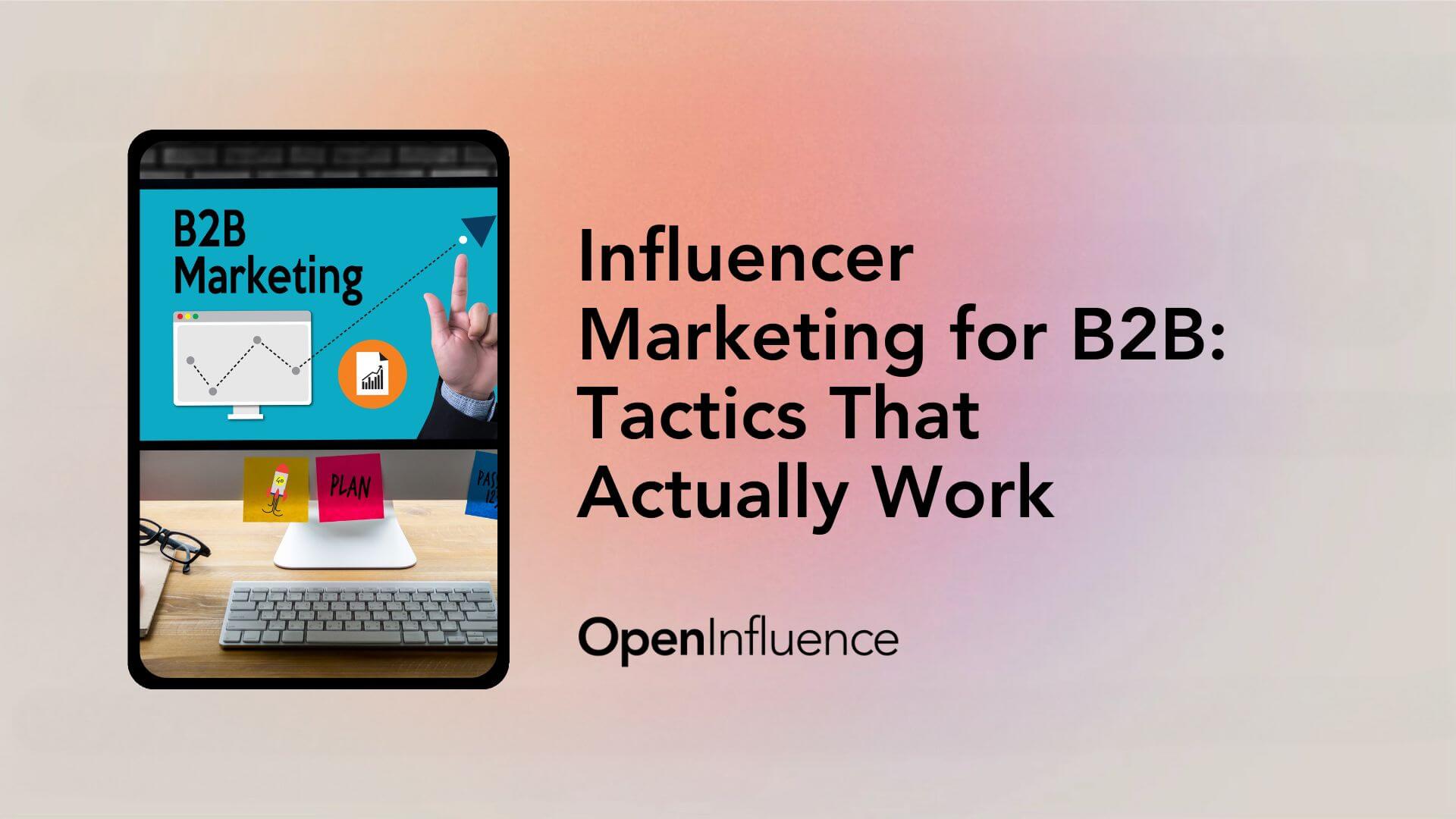The B2B Shift: From Virality to Value
How B2B Brands Are Leveraging Influencers Today
Types of B2B Influencers
- Industry Experts & Analysts – Respected voices who publish research, keynote events, and advise buying committees.
- Niche Micro- and Nano-Influencers – Professionals with modest but highly targeted audiences in specific verticals or technical domains.
- Internal Advocates – C-suite executives, technical leads, or brand evangelists who already carry authority and insight in your sector.
Channels That Work Best for B2B Influencer Campaigns
YouTube & Webinars
Podcasts & Email Newsletters
TikTok
- Millennial Buyers Are There: 75% of B2B buying teams are aged 25 to 44. These digital natives expect content that is mobile-first, human-centric, and easily digestible.
- Early-Stage Influence: B2B buyers complete 71% of the purchase journey before contacting a sales rep. TikTok allows your brand to shape that early-stage discovery.
- Humanize and Edutain: From behind-the-scenes clips to quick tips and thought-provoking skits, TikTok content helps brands build authentic relationships in seconds. Platform Trust: 66% of decision-makers on TikTok use it to discover business solutions. That’s a huge opportunity to embed your brand into the daily routines of your target audience.
Todayʼs digital-native decision makers are looking for self-service, mobile-first, quality content on platforms that allow them to learn and connect...on their own terms.
TikTok. (2023). B2B on TikTok 2024 Playbook
Building an Effective Influencer Marketing Strategy for B2B
Set Clear Campaign Goals
- Brand awareness and thought leadership
- Product education
- Webinar or event attendance
- Lead generation and ABM engagement
Identify the Right Influencers
- Prioritize Contextual Authority: Seek out influencers known for their insight within your specific industry.
- Assess Content Alignment: Review their tone, content format, and engagement to ensure they align with your brand values.
- Check for Affinity: Influencers who already use or mention your product organically will drive higher authenticity and performance.
Structure Partnerships for Long-Term Value
- Thought leadership series
- Product walkthroughs or demos
- Webinars and live interviews
- Social media takeovers
- Humorous or behind-the-scenes content that humanizes your brand
Proven Tactics That Deliver Results
Collaborate on Thought Leadership Content
Host Joint Webinars or Live Panels
Turn Customers Into Influencers
Integrate Influencers into ABM Campaigns
Measuring Success in B2B Influencer Marketing
- Demo requests
- Qualified leads
- Opportunity creation
- Closed revenue
Common Mistakes to Avoid
- Chasing Follower Count Over Authority: In B2B, expertise, not audience size, is what moves the needle.
- Running One-Off Campaigns: Without long-term relationships, content feels transactional and lacks authenticity.
- Misaligned Messaging: If influencer content strays too far from your brand tone or value proposition, it can create confusion rather than trust.
Ready to Start Your B2B Influencer Marketing Strategy?
FAQs
How is B2B influencer marketing different from B2C influencer marketing?
While B2B and B2C campaigns may differ in tactics, the core principles—trust, relevance, and storytelling—remain the same. B2B influencer marketing often focuses on longer sales cycles, complex decision-making, and educational content, whereas B2C leans into broad reach and faster conversions. But ultimately, it’s not about B2B vs. B2C—it’s about strategic alignment. Success comes from partnering with creators who authentically influence your target audience, regardless of the industry.
What platforms work best for B2B influencer marketing?
LinkedIn is the top platform due to its professional network and publishing tools. YouTube, webinars, podcasts, newsletters, and even TikTok are also highly effective, especially when used together in a multi-channel strategy.
How do I choose the right influencers for my B2B brand?
Look for influencers who are respected in your industry, align with your brand’s tone and values, and have demonstrated engagement with your audience. Prioritize relevance and authenticity over raw follower numbers. Our team here at Open Influence can help match the perfect creator based on the needs of your brand and messaging.

